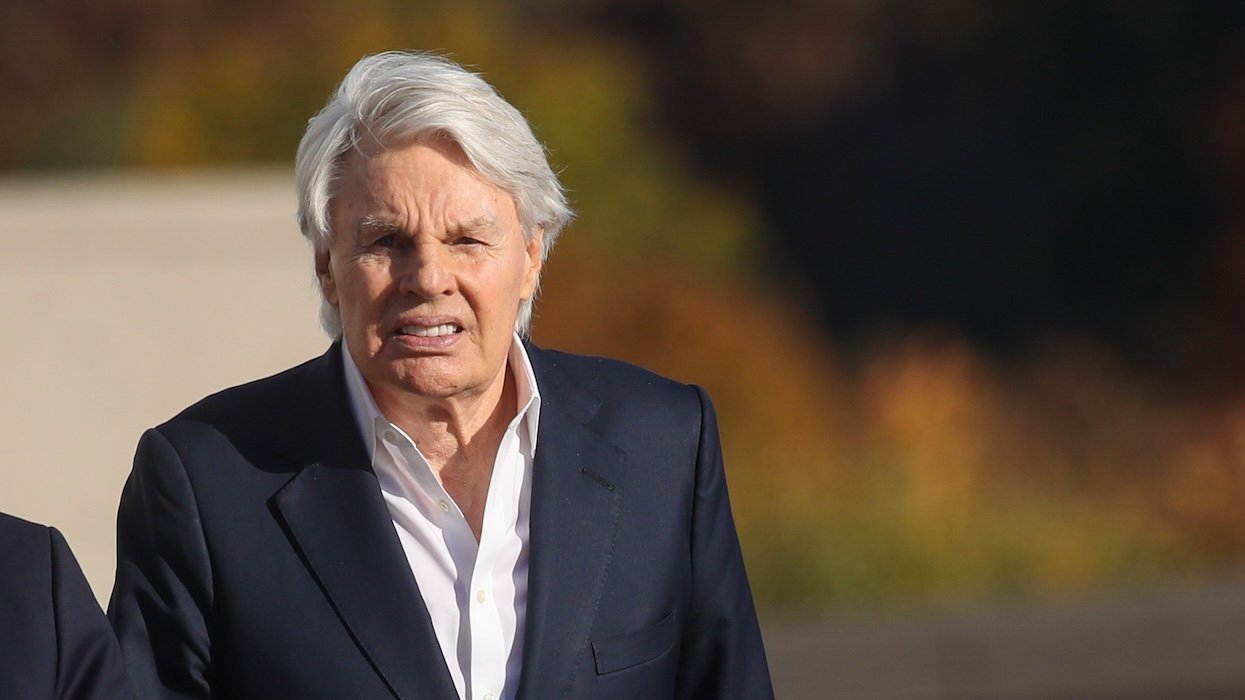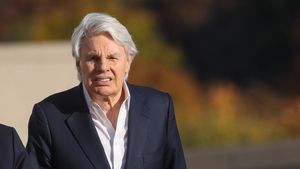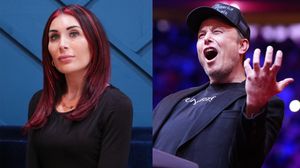It's been a rough month for the Employment Non-Discrimination Act, long-languishing federal legislation that would make it illegal to discriminate against LGBT people in employment.
Last week, led by the National Gay and Lesbian Task Force, seven major national LGBT organizations announced that they were withdrawing support for ENDA over the bill's religious exemptions, which they now see as too broad in light of the precedent set by the Supreme Court's Hobby Lobby ruling.
But several prominent LGBT advocacy organizations -- including the Human Rights Campaign, National Center for Transgender Equality, and Freedom to Work -- are standing by the embattled legislation, arguing that even an imperfect bill would be better than the dearth of federal protections currently offered to LGBT workers. Despite the fact that most Americans believe it's already illegal to fire someone because they are LGBT, in reality, gay, lesbian, and bisexual employees can be fired on the basis of their sexual orientation in 29 states, while transgender employees can be fired, not promoted, or not hired because of their gender identity in 31 states.
Hoping to illustrate the importance of employment protections to everyday Americans -- particularly those who are trans and gender-nonconforming -- NCTE and HRC have organized Transgender Lobby Day 2014, converging on Washington, D.C., yesterday and today. Among the delegation seeking face- time with their elected officials will be a dozen transgender advocates from Michigan, one of the 31 states without workplace protections for transgender people.
Those advocates will be sharing stories with their lawmakers about how the lack of employment protections have impacted them personally -- something volunteer and Lobby Day organizer Char Davenport knows all too well.
"As someone who has lived through workplace discrimination repeatedly, I know just how devastating losing a job can be," Davenport told HRC. "What I really like about [Transgender Lobby Day] is the opportunity to share our stories with those that need to hear them and get more people from the transgender community engaged."
Piggybacking off the visibility hopefully sparked by the Transgender Lobby Day, Freedom to Work's summer campaign, known as the 218 Project, looks to build majority, bipartisan support for ENDA in the House, even though Speaker John Boehner refuses to bring the legislation up for a vote. Using shareable graphics hosted on the 218 Project's website, Freedom to Work is encouraging constituents to contact their lawmakers and those in other districts through Facebook, Twitter, email, and phone, urging uncommitted representatives to add their names to the growing list of ENDA cosponsors in the House.
In the past month, The Advocatehas profiled 20 members of Congress from several conservative, liberal, and moderate districts, who activists say show interest in cosponsoring ENDA.
Recognizing that Michigan lawmakers will already have ENDA on their minds -- and hopefully on their visitation schedules -- Freedom to Work's latest group of targets for potential new cosponsors focuses heavily on lawmakers from the Great Lakes State. Below meet the lawmakers who also happen to be chairs of a range of prominent committees, where ENDA could particularly be of importance.
 Paul Ryan
Paul Ryan
Republican, Wisconsin
As one of the most prominent Republican House members, Ryan had previously voted to ban same-sex marriage and adoption by gay couples, and he voted against repealing the "don't ask, don't tell" ban on gays serving openly in the military. However, in 2007, Ryan did vote in favor of the Employment Non-Discrimination Act, even though the law excluded protections for transgender workers. In fact, he reportedly played a role in pushing gay lead sponsor Rep. Barney Frank to drop the transgender-inclusive protections from the bill.
In 2013, however, Ryan, chairman of the House Budget Committee voted for the LGBT-inclusive Violence Against Women Act. At a town hall meeting last year, Ryan said he no longer agreed with his vote against same-sex couples' right to adopt children.
"Adoption, I'd vote differently these days," he said. "That was, I think, a vote I took in my first term, 2000 or 1999. I do believe that if there are children who are orphans who do not have a loving person or couple -- I think if a person wants to love and raise a child they ought to be able to do that. Period. I would vote that way. I do believe marriage is between a man and a woman, we just respectfully disagree with each other on that issue."
At the same event, he said he would vote in favor of ENDA, though he needed to learn more about the transgender-inclusive version of the bill. But will that translate to his support as a cosponsor?
"Representative Ryan has an unquestioned record as one of our nation's conservative leaders, and he opened up a lot of Republican eyes when he voted for ENDA in 2007," says Christian Berle of Freedom to Work. "He has since stuck by his ENDA support when asked by reporters and other Republican lawmakers about that vote. It would be a real game-changer if Ryan took the next step and put his name behind the ENDA as an official cosponsor."
 Candice Miller
Candice Miller
Republican, Michigan
Charin Davenport, one of the lobbyists working in Washington this week to raise awareness over the need for a transgender-inclusive ENDA to Michigan Congress members, pointed to Miller as a key person in this process to MLive.com.
In 2007, Miller voted for ENDA, and she later voted for the LGBT-inclusive VAWA in 2013. Berle called Miller, the chairwoman of the House Committee on Administration, a leader among centrist Republicans, who could help encourage other moderate Republican Congress members to support ENDA.
"Her vote in favor of ENDA in 2007 shows that she understands American workers should be judged only on their talent and hard work - nothing more and nothing less," Berle said.
This won't be the first time Miller has been the target of lobbying for this session's version of ENDA. Members of the Human Rights Campaign who live in Miller's district made an effort to educate the congresswoman in April. According to the organization, Davenport was part of an effort to collect stories and letters for Miller about the need for ENDA.
"We want to show Candice Miller that people who live in her district want this," HRC Michigan field organizer Allison VanKuiken said, according to Pride Source.
 Dave Camp Republican, Michigan
Dave Camp Republican, MichiganWays and Means committee chairman Dave Camp has held onto high percentage ratings from the Family Research Council for years -- not a good sign if we're talking about LGBT rights. It goes without saying that he has a score of 0 from the Human Rights Campaign. But Camp, who is retiring, could make a big splash by voicing support for the bill since he has nothing to lose, at least in terms of a re-election campaign. Like Miller, Camp is of particular interest for Transgender Lobby Day, according to
MLive.com."Representative Camp has announced his retirement, so he only has a few more months to stand on the right side of history by backing LGBT workplace protections in Congress," Berle says. "If he cosponsors ENDA, he'll be joining with one of the largest employers in his district - Dow Chemical - which has been one of the most pro-LGBT and pro-ENDA leaders in all of corporate America." Camp's district also includes the city of Mount Pleasant, which has an LGBT-inclusive nondiscrimination ordinance.
 Fred Upton
Fred Upton
Republican, Michigan
Upton, who is the chairman of the House Energy and Commerce Committee, says marriage should be only for heterosexual couples. He also voted against ENDA in 2007, but in 2013, he did vote in favor of the LGBT-inclusive VAWA.
Model Kate Upton's uncle (though she seems to avoid talking politics, especially when asked about whether she agrees with Uncle Fred) represents parts of southwestern Michigan, which includes municipalities with LGBT-inclusive nondiscrimination ordinances.
"Representative Upton's constituents have local LGBT protections in Kalamazoo, Oshtemo Township, Saugatuck and Union Township, but Michigan's state law does not protect LGBT citizens so many of his constituents still need Congress to take action and create a federal law," Berle says. "Congressman Upton is a key ally of Speaker John Boehner, so by cosponsoring ENDA, Representative Upton would send a strong message that it's long past time to give LGBT workplace protections an up-or-down vote in the House of Representatives."
 Mike Rogers
Mike Rogers
Republican, Michigan
Rogers, like Camp, will be retiring after this term, so it might be an opportune time for him to take on ENDA. He voted against the bill in 2007, but his constituents probably would not mind if he switched his position, since his district includes East Lansing, which was the first municipality to prohibit anti-LGBT discrimination -- in 1972.
"It's now been more than four decades since East Lansing passed a local ordinance creating workplace protections for gay employees, and a few more localities in this congressional district have also passed fully inclusive LGBT protections, so Representative Rogers's own constituents can tell him how LGBT fairness is good for business and also the right thing to do," Berle says. "Representative Rogers is retiring from Congress, so he has nothing to lose by cosponsoring ENDA in his last few months in office. What he'll gain is being on the right side of history."
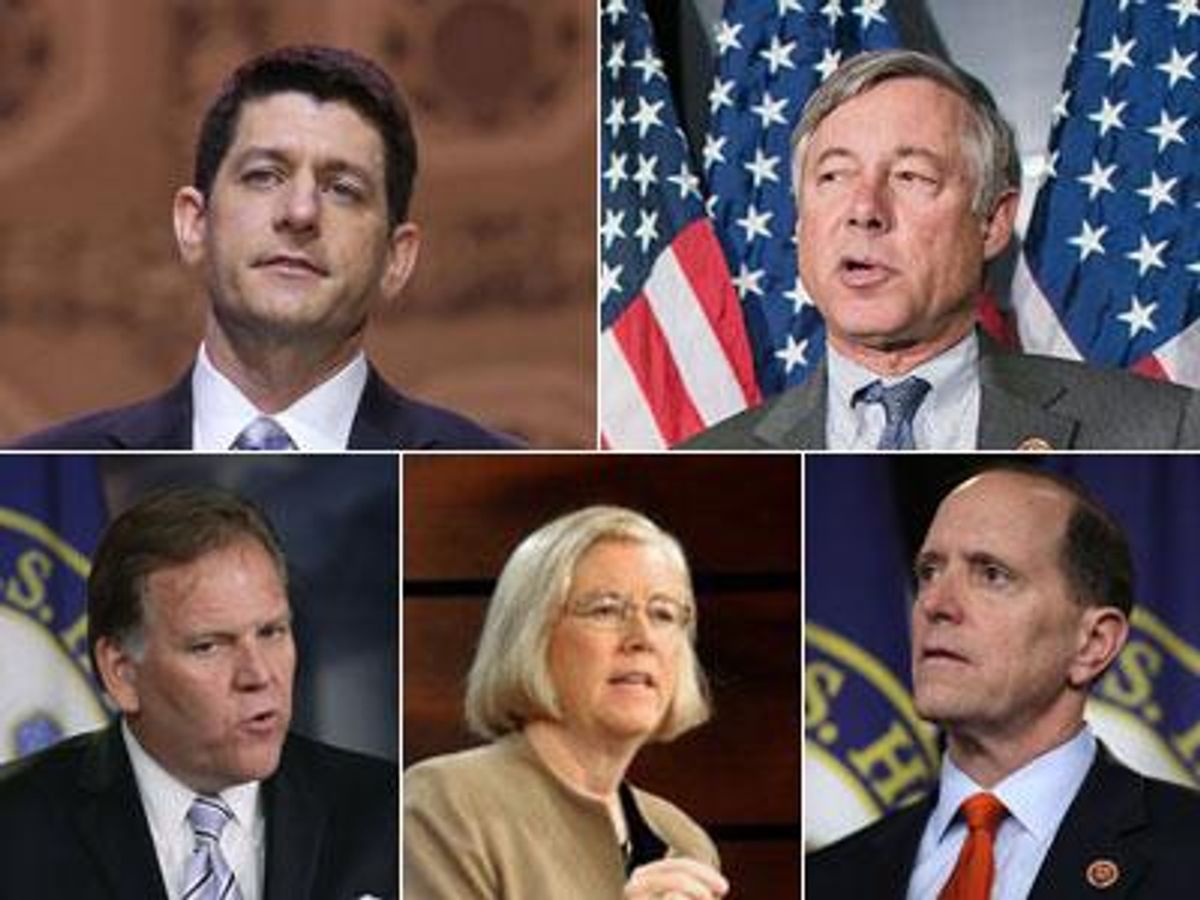

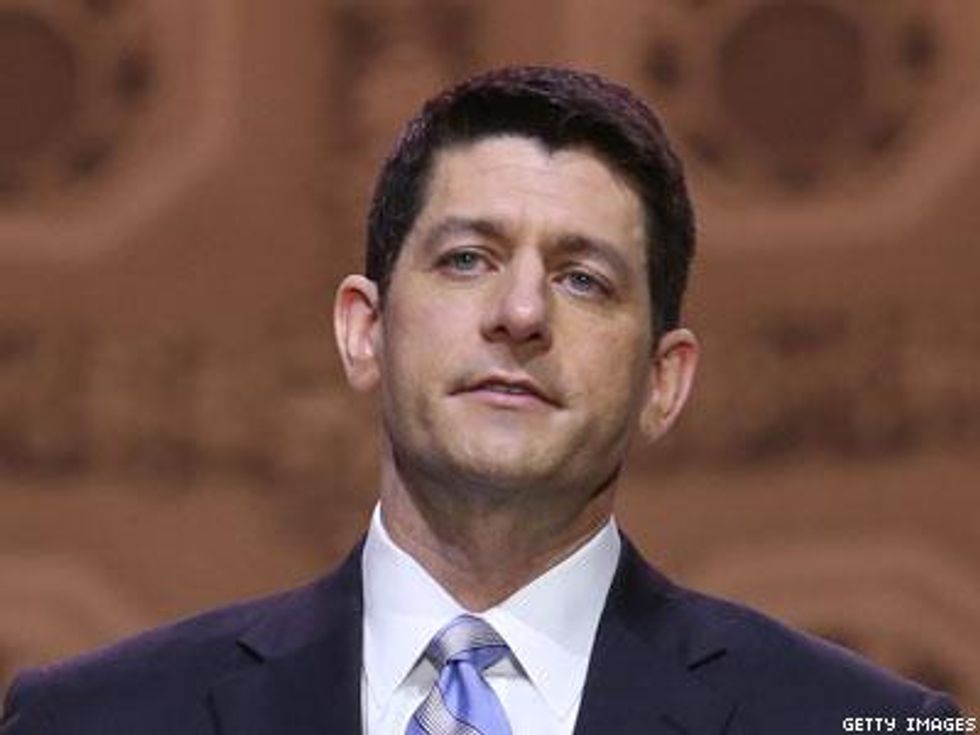 Paul Ryan
Paul Ryan 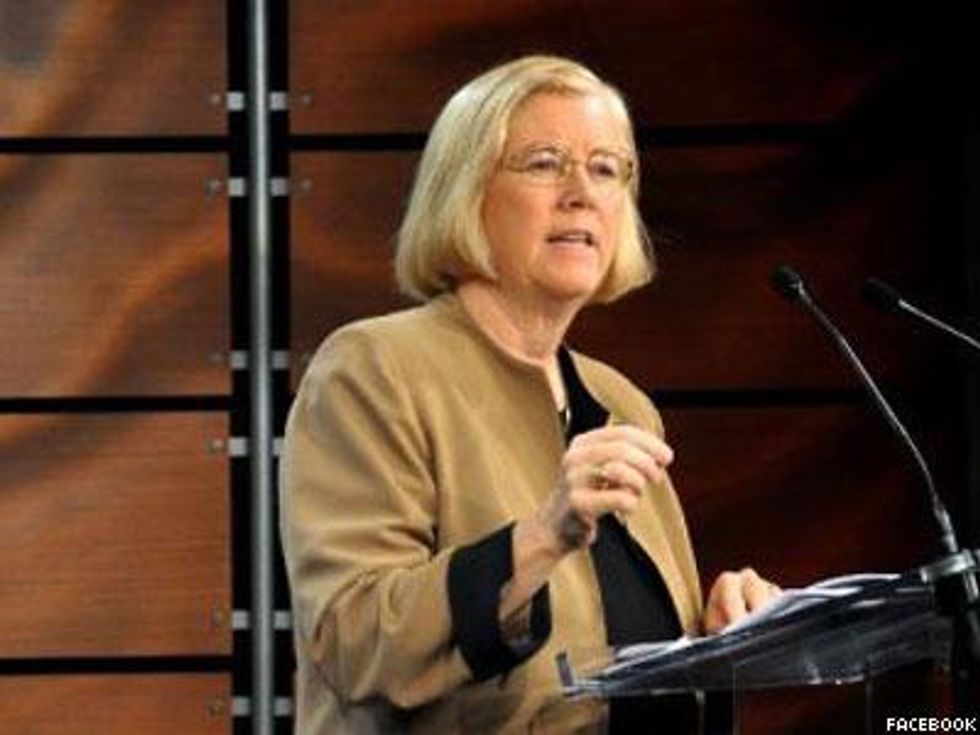 Candice Miller
Candice Miller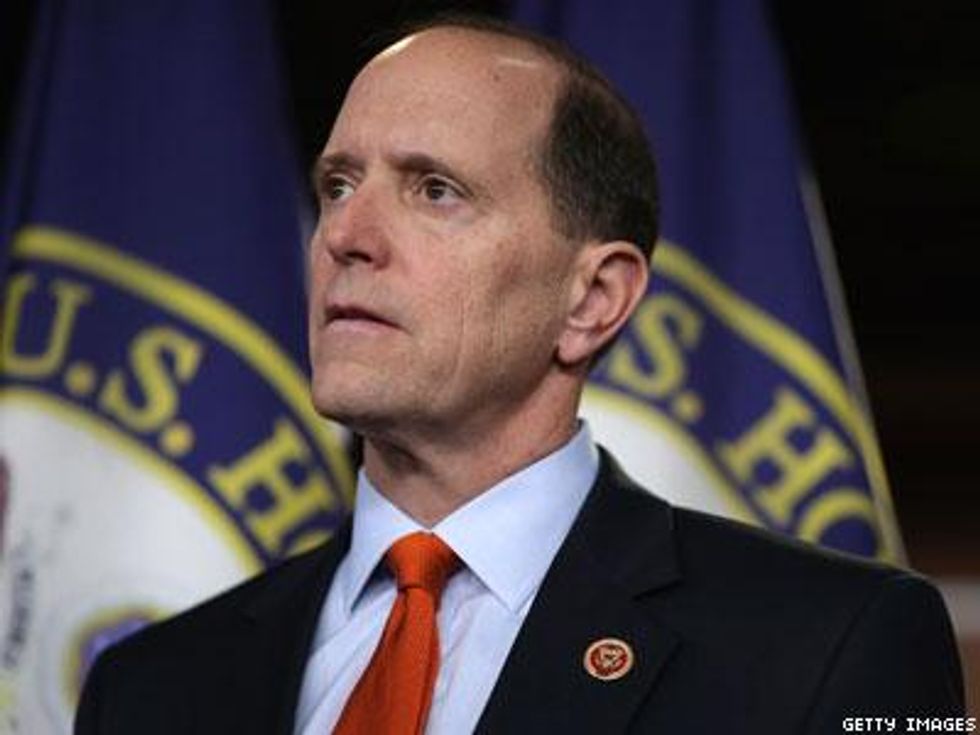 Dave Camp
Dave Camp 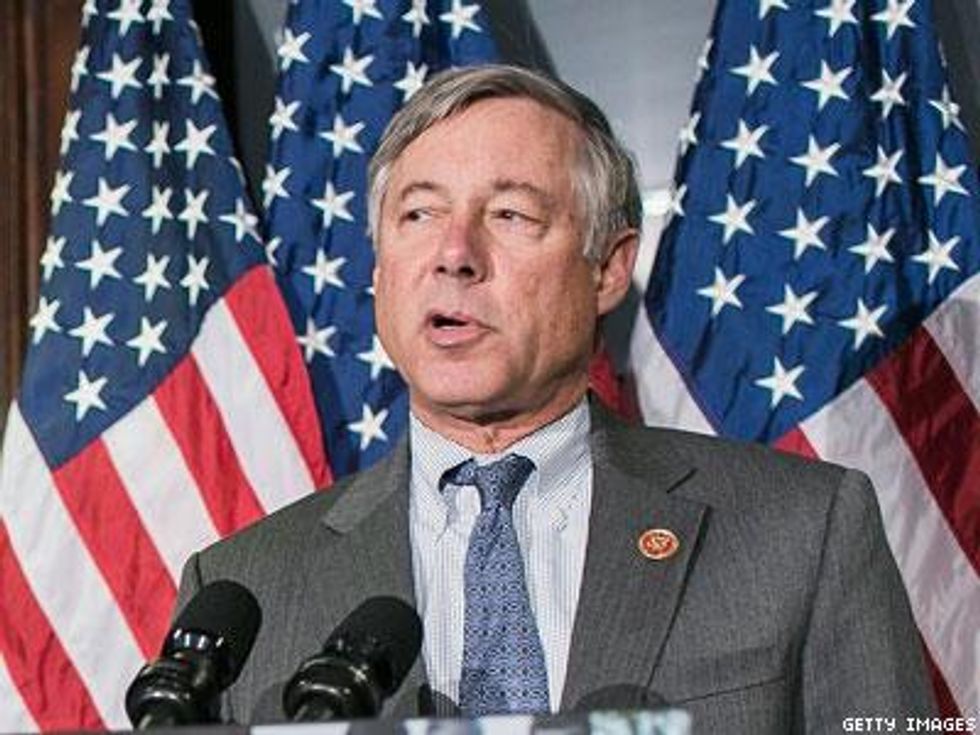 Fred Upton
Fred Upton 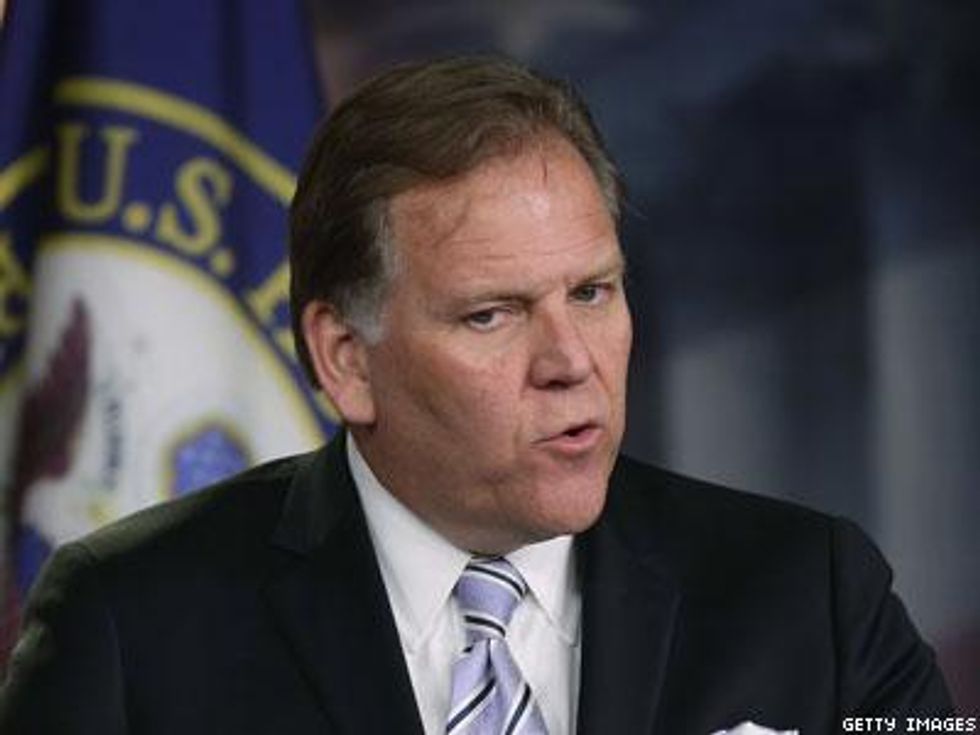 Mike Rogers
Mike Rogers 


















